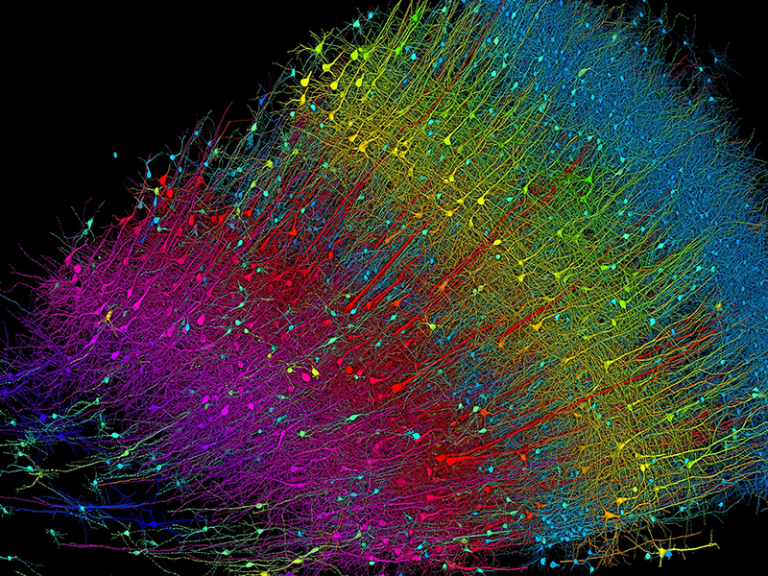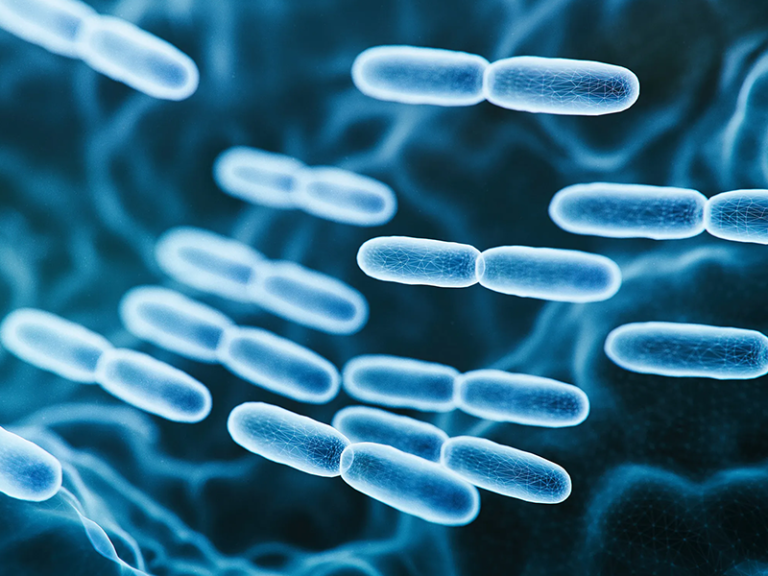Harvard University
The Brain
Since founding the world’s first neurobiology department in 1966, Harvard has been a hub for researchers who aspire to understand how the brain works, and clinician-scientists who are driven to fix it when it doesn’t.

Reconstructing the brain
A team of researchers has helped create the largest 3D brain reconstruction to date, showing in vivid detail each cell and its web of connections.

Probiotics to treat multiple sclerosis
Researchers have designed a probiotic to suppress autoimmunity in the brain, which occurs when the immune system attacks the cells of the central nervous system.
Brain busters
Harvard experts are seeking answers to some of our biggest questions about the brain.

How does the brain make decisions?
Scientists have gained new insights into how neurons in the brain communicate during a decision, and how the connections between neurons may help reinforce a choice.
Read MoreBrains of the operation
Aaron Berkowitz
Aaron’s efforts to improve neurological care in some of the world’s most impoverished regions was shaped by his study of musicology at Harvard.
Wendy Sun
Wendy studies the activity of specific brain regions and networks and measures their effects on behavior and mood.
Tal Gilboa
Tal is creating tools for Parkinson’s diagnosis and monitoring, which could accelerate drug development efforts.
Ana Raquel Santa Maria
Ana is working to discover proteins that are expressed in the blood-brain barrier and could possibly transport therapeutics to the brain.
These experts come from a network of Schools, Institutes, and Initiatives almost as vast as the neural networks of the brain, including but not limited to:
Decoding the brain
Harvard research has been shining a light on some of the long-standing mysteries of the brain.

- Mindfulness
How does meditation change the brain?
Neuroscientist and Harvard alum Richard Davidson discusses his decades of research on meditation and dispels myths about how it works and when, where, and how it can be done.
- Myths
Are there real differences between the left and right sides of the brain?
- Whatchamacallit
How do we derive meaning from spoken words?
- Gut feeling
What is the link between gut bacteria and emotions?
- Memory
Why do we remember—and forget?
- Mind/body
Are the brain and heart more connected than we thought?
- Earworms
What effects does music have on the brain?
- Navigation
How does the brain’s compass guide the body?
- Sleep
What does the brain do while we sleep?
The beauty within
Applied science
Researchers all across the Harvard community are working to find ways to support brain health for all stages of life.

early development
Growing evidence for growing brains
Early experiences affect the development of a child’s brain architecture, which provides the foundation for all future learning, behavior, and health. That’s why Harvard’s Center on the Developing Child is researching the best ways to increase brain-building games, reduce childhood stress, and promote responsive relationships and language-rich experiences.
YOU MAY ALSO LIKE









